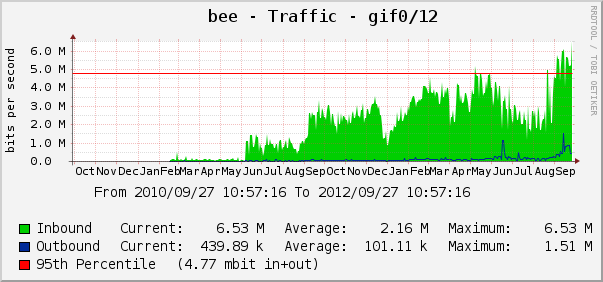Measuring Happy Eyeballs at RIPE 66
Vaibhav Bajpai gave a talk about his work on measuring the effectiveness of happy eyeballs at the RIPE 66 meeting.
The IETF has developed solutions that promote a healthy IPv4 and IPv6 co-existence. The happy eyeballs algorithm for instance, provides recommendations to application developers to help prevent bad user experience in situations where IPv6 connectivity is broken. We study the effectiveness of the happy eyeballs algorithm.
A recording of the talk can be found on Vimeo.

